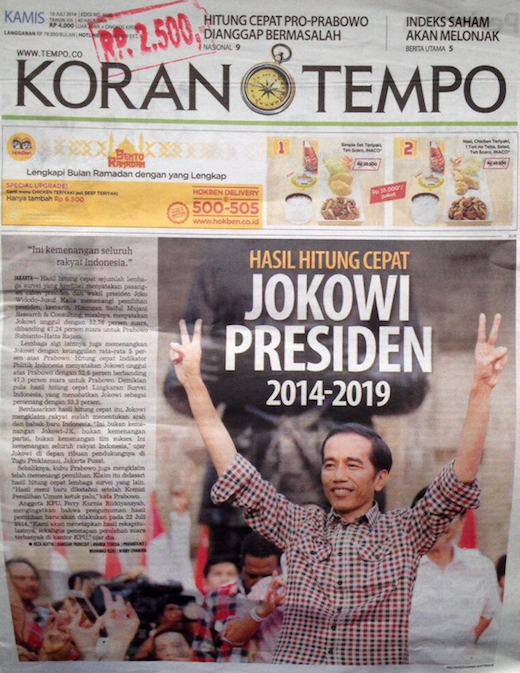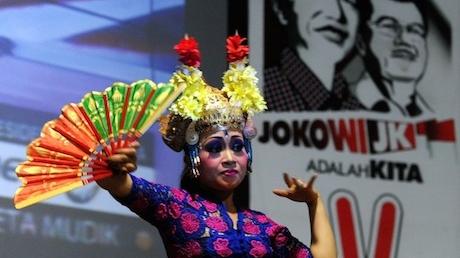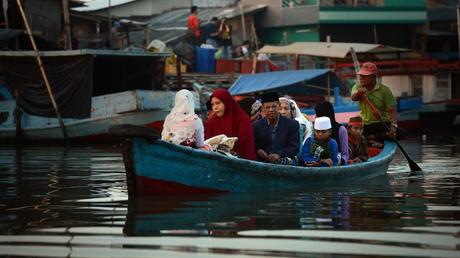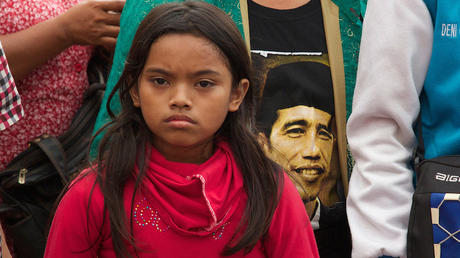
Joko "Jokowi" Widodo was last night announced as president elect by Indonesia's electoral commission, receiving 53.15% of the vote in the 2014 presidential election. The result means Jokowi and running mate Jusuf Kalla will commence their five-year term on 20 October.
Under normal circumstances, we would now be wondering whether rival Prabowo Subianto would file a challenge to the result through Indonesia's Constitutional Court, which must be lodged within three days. But yesterday afternoon, Prabowo rejected the election and withdrew from the remaining process, just hours before the official result announcement. He alleged widespread election day irregularities and unfair conduct by the electoral commission, and told supporters, "when we see the rape of the Indonesia's nation's constitutional rights, every citizen must take a stance".
Prabowo's withdrawal mainly raises the question of what else he might try to do outside the legal process to contest the election result.
Does Prabowo's withdrawal make a difference? In formal terms, the answer is no. Indonesia's presidential election law prohibits the withdrawal of candidates once the electoral commission has confirmed their nomination, and threatens those withdrawing with prison terms and fines. Even if the powers-that-be were inclined to apply such penalties to Prabowo though he might escape them, because those drafting the criminal offences did not anticipate a candidate would withdraw after election day but before the results were announced.
If anything, Prabowo's withdrawal might prevent him from taking his claims of fraud to the Constitutional Court, where they could be tested. Only candidate pairs are able to lodge challenges at the Court - Prabowo's withdrawal presumably means he has abrogated that status. This fact may lay behind the apparent backpedalling by members of his camp later in the day, one of whom suggested he had only withdrawn from the vote recapitulation process, not from the election as a whole.
Nor is there any sign that Prabowo's claims of fraud would have stood up to scrutiny. Jokowi and running mate Jusuf Kalla's margin of victory was just over 8 million votes, meaning any fraud would need to be massive. Ironically, too, Prabowo has himself ensured that the recapitulation process has been unusually heavily scrutinised, because he claimed victory on election day based on dubious quick counts. (All credible quick counts showed Jokowi as the winner.)
Instead, Prabowo's withdrawal mainly raises the question of what else he might try to do outside the legal process to contest the election result. He could try to undermine the legitimacy of Jokowi's presidency by using his networks to organise prolonged protests, for example. For such a move to gain any traction, at a minimum it would need the united support of his coalition partners. But even that seemed in doubt yesterday.
No less than Hatta Rajasa, his vice presidential running mate, was absent from Prabowo's press conference to announce his withdrawal from the election. Nor did Prabowo read out Hatta Rajasa's name as a signatory to the statement. Indeed, media reports speculated that Hatta would take a different stance and accept the electoral commission count. An expected Hatta press conference did not take place though, and at the time of writing Hatta was yet to make a public statement.
But regardless of Prabowo's actions, the latest in a string of stunts to undermine the democratic process, the real headline of the day is the culmination of Jokowi's meteoric rise from small town mayor to become Indonesia's seventh president (elect).




